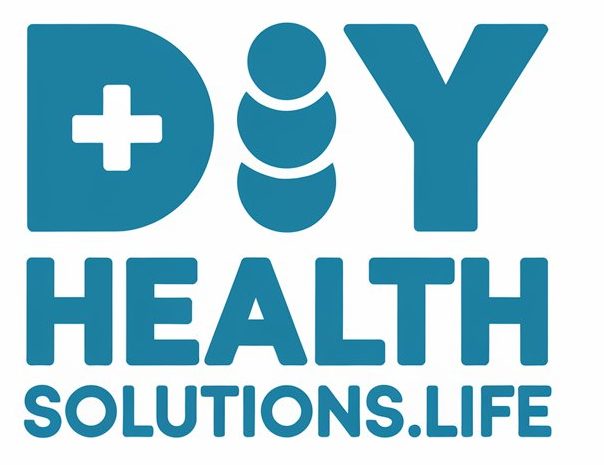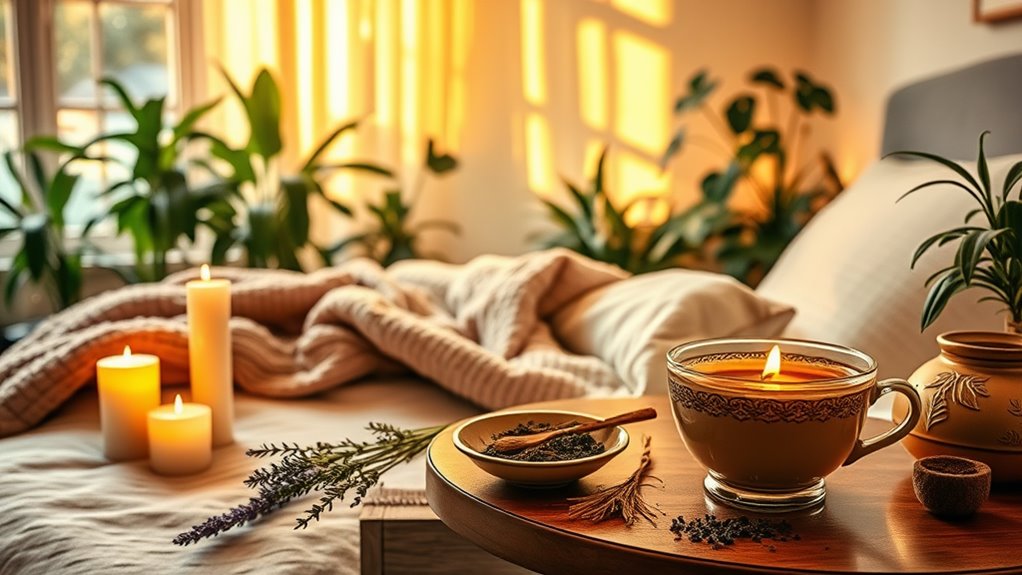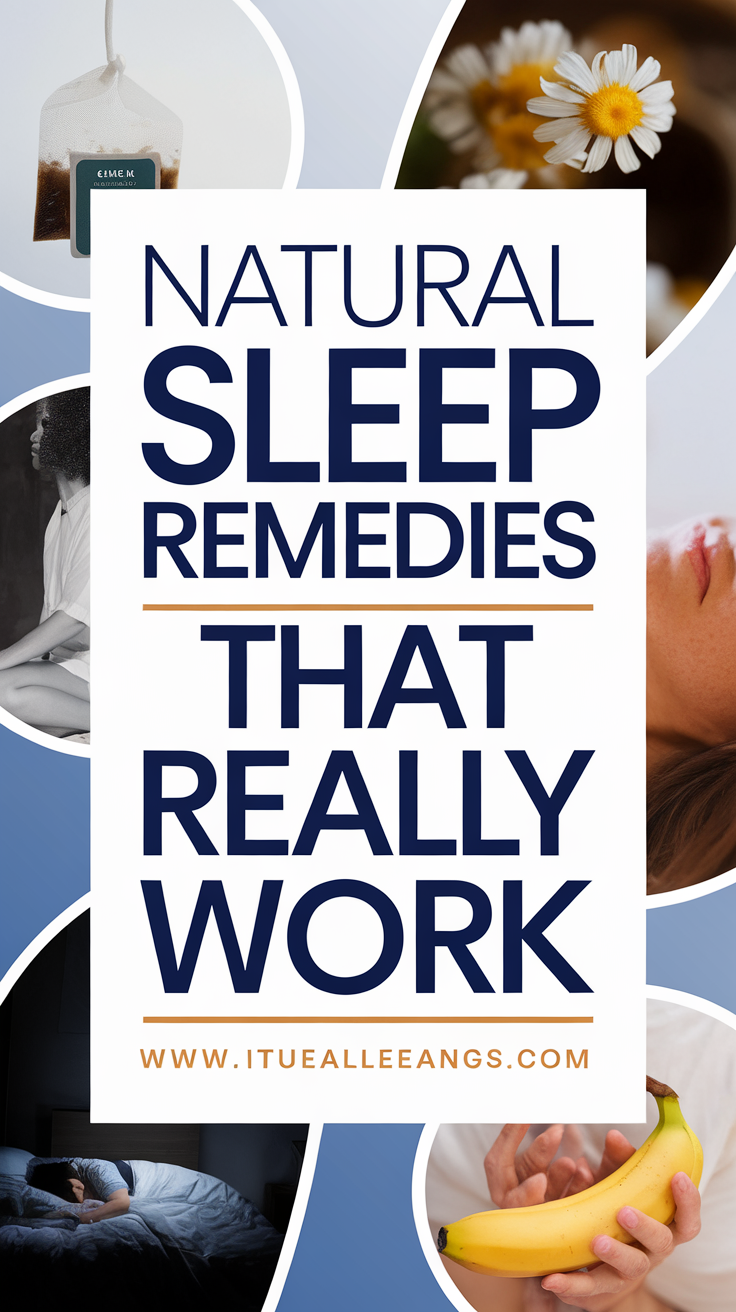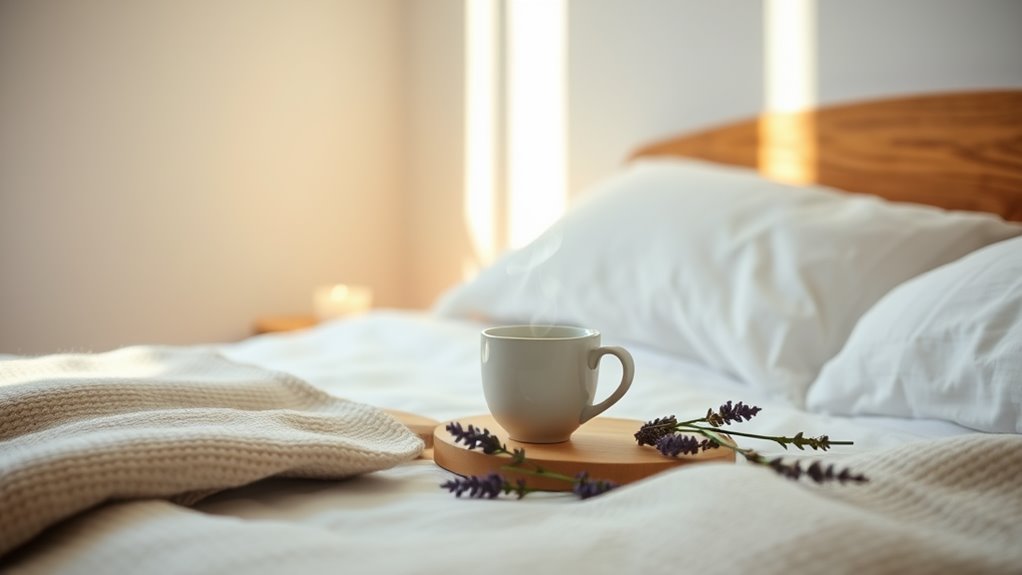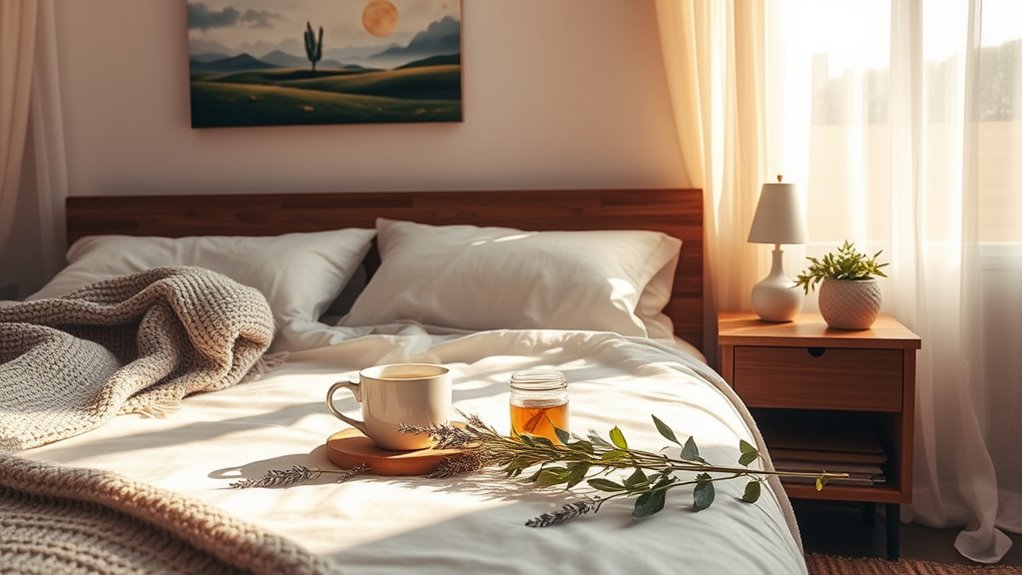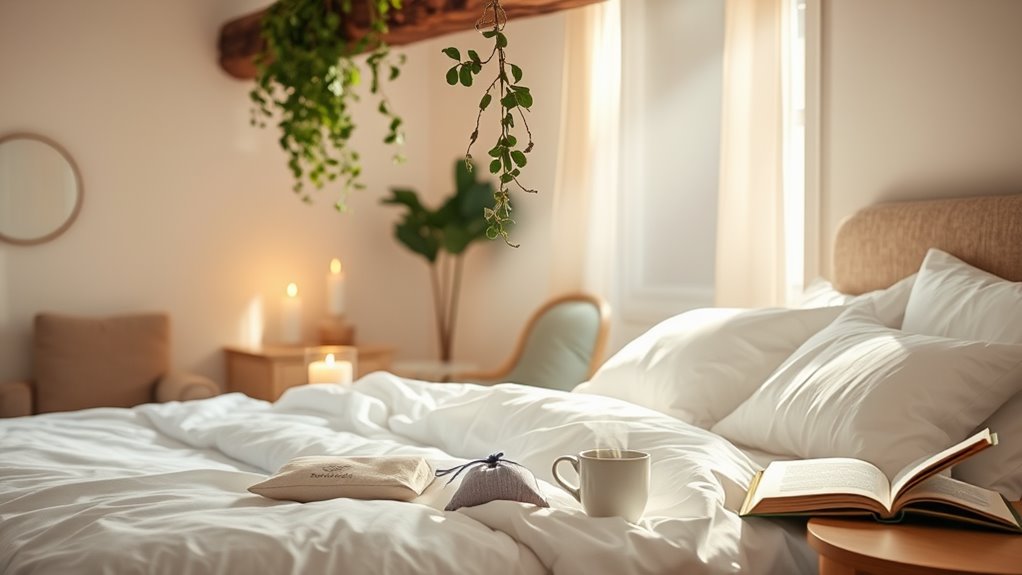Natural Sleep Remedies to Help You Fall Asleep in Minutes!
If you’re struggling to fall asleep quickly, natural remedies can provide some relief. Consider taking melatonin, which may help regulate your sleep cycles. Valerian root and passionflower are herbal options that might improve sleep quality. For a calming bedtime routine, try sipping warm milk or chamomile tea to promote relaxation. Also, create a cozy sleep environment by keeping your room dark and cool, ideally between 65-72°F. Keeping a consistent sleep schedule and limiting caffeine helps too. With a bit of trial and error, you can discover what works best for you. There’s more to explore on this restful journey!
Effective Natural Sleep Aids
When it comes to finding effective natural sleep aids, several options can help you improve your sleep quality. Melatonin, a natural hormone, regulates your sleep-wake cycles. Taking doses between 3 to 10 mg before bedtime may help you fall asleep faster and sleep longer.
Valerian root is another herbal remedy that might enhance sleep quality by affecting GABA levels in your brain, although research on its effectiveness is still mixed.
Magnesium is an essential mineral that plays a crucial role in melatonin production and GABA levels. For older adults, daily doses ranging from 225 to 729 mg can significantly benefit sleep quality.
Don’t overlook chamomile tea, either! It contains flavonoids that can promote relaxation by interacting with sleep-related brain receptors, although its ability to treat insomnia isn’t fully proven.
If you’re looking for other options, passionflower has shown some promise in limited studies for improving sleep quality, potentially by increasing GABA levels.
Creating a Sleep-Friendly Environment
Creating a sleep-friendly environment is essential for improving your sleep quality. Start by setting your thermostat between 65-72 degrees Fahrenheit, which creates an optimal cool environment that enhances comfort and helps you drift off to sleep faster.
Layered bedding is another great idea; it allows for temperature adjustments throughout the night, so you can stay cozy as your body temperature changes.
To boost sleep quality, aim for dark environments. Blackout curtains can block outside light, signaling to your brain that it’s time to rest. Avoiding bright lights before bedtime is crucial, too. If you need to get up during the night, consider using a flashlight. This helps maintain a dark environment and minimizes sleep disturbances.
Choosing breathable fabrics for your bedding, like cotton, can make a big difference, especially if you experience hot flashes. These materials promote airflow, ensuring you stay comfortable throughout the night.
Tips for Better Sleep Habits
Better sleep habits can transform your nights and boost your overall well-being. To help you improve sleep, start by establishing a consistent sleep schedule. Going to bed and waking up at the same time each day can significantly enhance your sleep quality.
You might also want to limit your caffeine intake, especially four hours before bedtime, to prevent disruptions in your sleep patterns.
Another helpful tip is to create a dark sleeping environment. Using blackout curtains can signal to your brain that it’s time to wind down, promoting better rest.
As you prepare for bed, consider sipping on some warm milk. It can simulate the effects of tryptophan and help you fall asleep faster.
Incorporating moderate aerobic exercise into your daily routine can also make a difference. It enhances slow-wave (deep) sleep, but just remember to avoid exercising close to bedtime.
These natural remedies, combined with good habits, can lead you to a more restful night. By making these small adjustments, you can improve your sleep and wake up feeling refreshed and energized!
Professional Support for Sleep Issues
Seeking professional support for sleep issues can be a game changer if you’re struggling with persistent sleep disorders. Consulting a sleep medicine expert is essential, as they can create tailored treatment plans that address your specific sleep challenges.
These specialists focus on diagnosing and treating sleep-related issues through non-pharmacological methods, looking at the underlying behavioral factors that might be affecting your sleep. Regular follow-ups with your healthcare providers are crucial for tracking your progress. They can help adjust your treatment strategies as needed, ensuring that you’re on the right path to better sleep quality.
Additionally, education on sleep hygiene practices from qualified professionals can significantly enhance the effectiveness of your sleep treatments. If you’re seeking specialized care, treatment centers like the Center for Sleep and Wellness and the Pediatric Sleep Center at Johns Hopkins offer comprehensive assessments for various sleep disorders in both adults and children.
Safety Considerations for Sleep Remedies
How safe are natural sleep remedies? While they can seem like a good option for sleep disturbances, safety considerations are crucial. Always consult a healthcare professional before trying any new natural sleep aids, especially if you have existing health conditions.
Some remedies might interact with medications or other supplements you’re taking, which can lead to unexpected side effects. Common side effects may include headaches, dizziness, nausea, and excessive drowsiness.
Remember, these effects can vary significantly among individuals, so what works for one person mightn’t work for another. If you’re pregnant or nursing, it’s even more important to consult a healthcare provider, as many sleep aids lack sufficient research on their safety during these periods.
Also, if you suffer from chronic insomnia, it may indicate underlying health issues that require medical attention rather than self-treatment.
Lastly, keep in mind that the FDA doesn’t require pre-market evaluation for over-the-counter sleep aids, leading to variability in quality and safety across different brands. Prioritizing your health by seeking professional advice will help ensure you make safe choices for better sleep.
